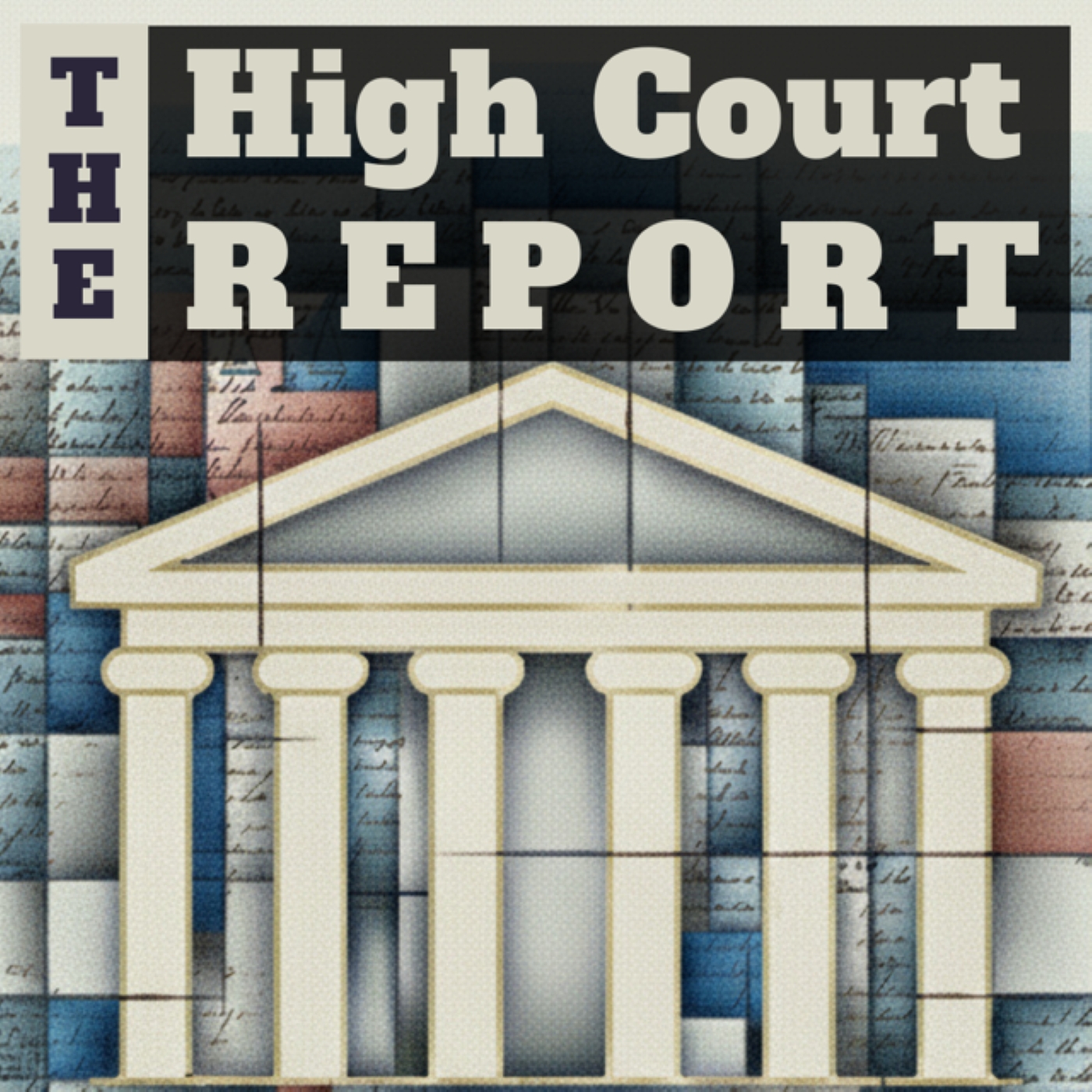Episode 128
Opinion Summary: Waetzig v. Halliburton Energy Services, Inc. | Date Decided: 2/26/25 | Case No. 23-971
Case Info: Waetzig v. Halliburton Energy Services, Inc. | Date Decided: 2/26/25 | Case No. 23-971
Link to Docket: Here.
Question Presented: Whether a Rule 41 voluntary dismissal without prejudice is a "final judgment, order, or proceeding" under Rule 60(b).
Holding: A case voluntarily dismissed without prejudice under Rule 41(a) counts as a “final proceeding” under Rule 60(b).
Result: Reversed and remanded.
Voting Breakdown: 9-0. Justice Alito delivered the opinion for a unanimous Court. No justice filed a concurring or dissenting opinion.
Link to Opinion: Here.
Oral Advocates:
- For petitioner: Vincent Levy, New York, N. Y.
- For respondent: Matthew D. McGill, Washington, D. C.
Website Link to Oral Argument: Here.
Podcast Link to Oral Argument: Here.
Transcript
Halliburton Energy Services, Inc.
Speaker A:Case number 23 971.
Speaker A:The question presented in this case is whether a Rule 41 voluntary dismissal without prejudice is a final judgment order or proceeding under Rule 60B.
Speaker A:Justice Alito delivered the opinion for a unanimous court.
Speaker A:No justice filed a concurring or dissenting opinion.
Speaker A:Please note that this summary is read by an automated voice.
Speaker B:Justice Alito's unanimous opinion Gary Wetzig filed a federal age discrimination lawsuit against his former employer, Halliburton Energy Services, Inc.
Speaker B:He later submitted his claims for arbitration and voluntarily dismissed his federal lawsuit without prejudice under Federal Rule of Civil Procedure 41A.
Speaker B:After losing at arbitration, he asked the district district court to reopen his dismissed lawsuit and vacate the arbitration award, asserting Federal Rule of Civil Procedure 60b as the basis for reopening the suit.
Speaker B:Federal Rule of civil procedure 60b permits relief from a final judgment order or proceeding.
Speaker B:The district court reopened the case, finding that a voluntary dismissal without prejudice counts as a final proceeding and that Waitsig made a mistake when he dismissed his case rather than seeking a stay.
Speaker B:The district court separately granted Waitzig's motion to vacate the arbitration award.
Speaker B:The 10th Circuit reversed, held a case voluntarily dismissed without prejudice under Rule 41 accounts as a final proceeding under Rule 60B, pages 4 to 14A.
Speaker B:The court does not address Halliburton's argument regarding jurisdiction over the motion to vacate.
Speaker B:The question whether Rule 60B permits reopening a case that was voluntarily dismissed without prejudice is antecedent to jurisdictional questions about the motion to vacate.
Speaker B:The lower courts may address those questions on remand pages 4 to 6b.
Speaker B:Text, context, and history support the conclusion that a rule 41 a voluntary dismissal without prejudice qualifies as a final Proceeding under Rule 60B, pages 6 to 14 1.
Speaker B:A voluntary dismissal is final because it terminates the case.
Speaker B: with legal dictionaries from: Speaker B:The word final underscores that Rule 60B does not infringe a court's inherent and distinct power to revise its interlocutory decrees in an ongoing case.
Speaker B:Halliburton's request to construe final consistent with jurisdictional statutes like 28 U.S.C.
Speaker B:section 1, 291, which gives the courts of appeals jurisdiction over appeals from final decisions of district courts is unpersuasive.
Speaker B:The finality concept in appellate jurisdiction serves a distinct purpose, preventing interlocutory appeals from impairing case resolution at the trial level.
Speaker B:Finality under Rule 60B does not play a similar role.
Speaker B:Unlike an appeal filed under the appellate jurisdiction statute, a motion for relief under Rule 60B is discretionary, not a matter of statutory right.
Speaker B:Rule 60B, therefore, does not pose the same risk to efficient case resolution before the trial courts.
Speaker B:The court sees no reason to import the understanding of finality that applies in the field of appellate jurisdiction to the different Context of Rule 60B.
Speaker B:Pages 6 to 9 2A.
Speaker B:Voluntary dismissal counts as a proceeding under Rule 60B.
Speaker B: Legal dictionaries from: Speaker B:Other federal rules similarly treat proceeding as including all formal steps in an action.
Speaker B:Halliburton and the court below assert that the term proceeding should be read in the context of its neighboring terms judgment and order.
Speaker B:And because a judgment and order both involve some judicial determination of rights, a proceeding should at least involve some judicial action or conclusive determination of rights.
Speaker B:Although it is true that statutory terms must be read in the context of their neighbors, that rule cuts the other way in this case.
Speaker B:The proposed alternative reading would strip proceeding of independent meaning, as any judicial determination would already be an order.
Speaker B:When Rule 60B authorizes relief from a judgment, order, or proceeding, the rule speaks in an ascending order of generality.
Speaker B:The structure of the rule suggests that each term should be read as broader than what came before.
Speaker B:Pages 10 to 12.
Speaker B:The court's reading is buttressed by historical Context, as Rule 60B was modeled after a California statute previously interpreted to extend to voluntary dismissals without prejudice.
Speaker B:See hall vs.
Speaker B: United States: Speaker B:Reading Rule 42A in light of its statutory predecessor, pages 12 to 13, 82 F.
Speaker B:4918 reversed and remanded case implications.
Speaker A:This ruling may lead to an increase in Rule 60B motions from plaintiffs who voluntarily dismissed their cases without prejudice but later discovered issues with alternative proceedings.
Speaker A:Litigants will need to exercise greater caution when advising clients about voluntary dismissals, as this ruling creates a potential safety net that not all jurisdictions previously recognized.
Speaker A:Courts may face additional administrative challenges managing reopened cases they previously considered terminated, potentially complicating docket management systems.
Speaker A:The decision may also influence strategic litigation choices in cases involving parallel proceedings like arbitration, as parties will now calculate different risks.
Speaker A:Knowing a voluntary dismissal without prejudice doesn't necessarily foreclose all paths back to federal court.
